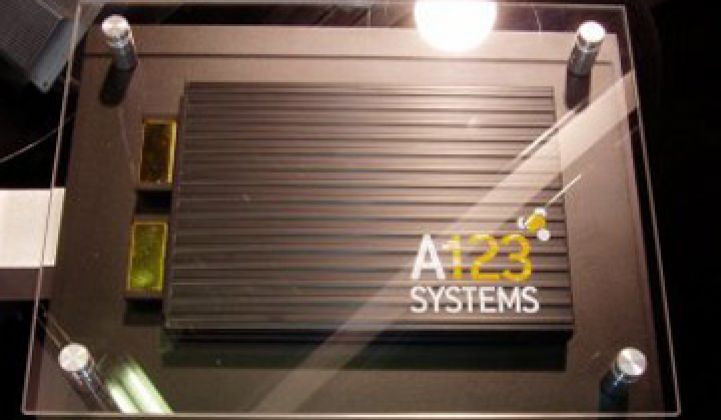Michael Rubino, the CFO at battery maker A123 Systems, has seen the light.
Rubino is joining Digital Lumens, which has developed a lighting management network, as well as an LED-based high-intensity light fixture for warehouses and tennis courts.
Granted, A123 has never made a profit, and last quarter actually saw battery shipments (by total capacity) decline, but let's not hold that against Rubino. During his tenure, A123 held a highly anticipated initial public offering which helped usher in IPOs from Tesla Motors, Codexis, Molycorp and others. The battery company also landed grants with the Department of Energy.
The challenge A123 has faced is that it is a startup in an industry dominated by massive conglomerates.
By contrast, Digital Lumens has some breathing room. Lighting consumes 22 percent of the electricity in commercial buildings but to date, no one has done that much about it. The vast majority of lights cannot be dimmed or controlled remotely. To top it off, the lights in most buildings are old-fashioned vacuum tube lights.
Large companies are already looking over the many promising startups in this market. Along with Digital Lumens, the list of notables includes Lumenergi, Lumetric, Metrolight, Daintree Networks and Adura Technologies.
In one particular case study, Digital Lumens dropped a customer's cold storage facility lighting bill 95 percent, from $225,000 to $10,000. The site was 268,000 square feet, and is used 24 hours a day, 7 days a week, 365 days a year, with 10 percent occupancy.
To get around some of the perceived shortcomings of LED bulbs in these environments, the company has devised its own fixture with onboard computers, sensors, decision-making engines and other features. Think of it as the Porsche Cayenne of warehouse lighting.



